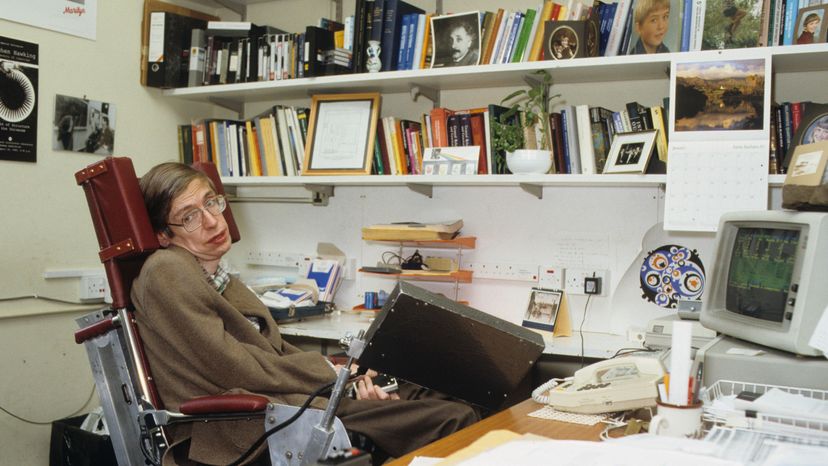The No-Boundary Proposal

Stephen Hawking's ideas also took him to the edge of the universe and back to where it all started. Along with scientist James Hartle, Hawking put forth an idea of what happened before the Big Bang.
Because the universe is constantly expanding, scientists have suggested that the origins of the universe can be traced by thinking about the process in reverse. While backtracking, Hawking and Hartle realized the universe becomes smaller until you reach the extremely dense and high-energy ball necessary for the Big Bang to violently set the beginnings of the universe in place. Yet as you get smaller and smaller, you start seeing the origins of the universe at the subatomic level.
Advertisement
Here's where things get a bit complicated. The duo theorized that once you get to such a tiny, detailed level -- where particles spontaneously pop up and disappear, space becomes separated from time. In essence, time loses the meaning we traditionally assign to it. As a result, it's impossible to measure events before the Big Bang because time -- as we know it -- doesn't exist.
Hawking and Hartle said the universe doesn't have a boundary, much like Earth's rounded surface lacks an edge. Hawking likened his no-boundary proposal (aka Stephen-hawking-Hartle state) for the universe to traveling southward until you reach the South Pole. When you reach the South Pole, the term "south" loses its meaning. The same idea is applied to time before the Big Bang -- once you trace back the universe to its beginning, the concept of time (as we define it, at least) becomes obsolete.
Biographer and science writer Kitty Ferguson said the no-boundary proposal is less accepted than Hawking radiation. "To this day there are many people in physics who don't accept it as something in physics that can be used as part of other theories -- you can't use it as a starting off point to go somewhere else," Ferguson said.
In later years, Hawking doubted the possibility of a "theory of everything" existing, an all-encompassing theory of theoretical physics that would explain pretty much everything [source: Sample]. He was also a skeptic on finding the Higgs boson, an elusive particle thought to give subatomic particles mass, and lost a bet in 2012 when it was discovered.
Read on to learn about Hawking's more speculative theories.